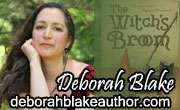Paganistan: Notes from the Secret Commonwealth
In Which One Midwest Man-in-Black Confers, Converses & Otherwise Hob-Nobs with his Fellow Hob-Men (& -Women) Concerning the Sundry Ways of the Famed but Ill-Starred Tribe of Witches.
Book Religion Bad
My friend Ramkishor and I have spent many fruitful (and pleasurable) hours discussing religious observance and practice. From him, and from his tradition, I have learned much over the years. To cite only one example: here in the West, our traditions of temple worship were lost long ago; as we rebuild the temples of the West, we need to start somewhere as we relearn what we need to know.
Nonetheless, when he invited me over to discuss the scripture on which his iteration of "Hinduism"—in this case, the Srimad Bhagavatam (he worships Krishna)—I had to respectfully decline.
“I'm a pagan,” I told him. “Pagans have a profound distrust of Scripture.”
I did not tell him that I think that Book religions are inherently baneful.
I did not.
Collections of hymns: that's where pagan religions draw the line. The Homeric hymns, the Rig Veda: fine. The Vedic religion, which the hymns of the Rig Veda articulate, is pagan. The dharmic religions that ultimately grew out of it—"Hinduism", of course, being a (colonial) term of convenience for the kindred but differing religious traditions of the Subcontinent—is not.
(In my opinion, the Hinduisms ceased to be pagan during the Upanishadic period, when they became world-denying, but that's by the by.)
Book religions have perpetrated much wrong in the world. Indubitably they have spread homophobia to places where it never existed before. Why, one might ask, are Book religions so destructive?
A book is its own world: therein lies the danger. Human beings being an inherently egocentric species, books play to our main weakness: they show us a world made entirely by humans. They tell us that we're uniquely important, which (of course) everyone enjoys hearing, but which is poison when you really come to believe it.
When our religions are based on books, we lose our connection with the rest of the living world. We forget that the plants, the animals, are our kin. We come to think ourselves more important than they are. The current ecological crisis shows clearly where such a dangerous loss must inevitably lead.
There's nothing inherently wrong with books; in fact, I love and honor them. You just don't want to go basing your religion on them, that's all: that way lies danger.
So thanks very much, but I think I'll give your scripture study a pass. When it comes to scriptures, frankly, I think that we're better off without them.
Me pagan. Book religion, bad.
Unh.
Comments
-
Please login first in order for you to submit comments





















In "Heirs to Forgotten Kingdoms" Gerard Russell mentions a Mandaean demon named Dinanukht who is half man and half book and "sits by the waters of the worlds, reading himself".